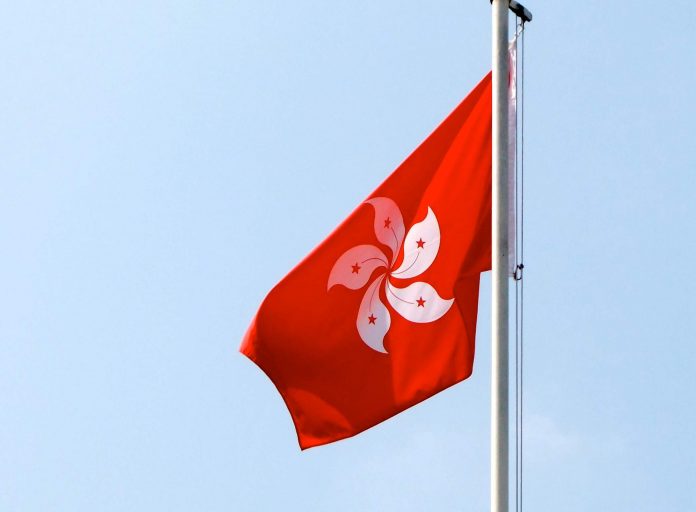The introduction of the National Security Law before China’s National People’s Congress on May 21, 2020 presents a clear escalation of Beijing’s policy towards Hong Kong, signalling the demise of the “One Country, Two Systems” principle and its adoption of “rule by law” over the rule of law in governing the former British colony.
The National Security Law, formally titled “Establishing and Improving the Legal System and Enforcement Mechanism of Hong Kong,” was introduced as part of the third annual session of the 13th National People’s Congress (NPC), which has drawn thousands of deputies and members from across the country to Beijing to address issues of national significance. Consequently, the law was introduced as part of the NPC’s plan to set up a legal framework and enforcement mechanism for the safeguarding of China’s national security in Hong Kong.
Where attempts to introduce national security laws via a locally introduced Bill implementing Article 23 of the Basic Law have faced repeated opposition in the city’s Legislative Council, the CCP now aims to sidestep Hong Kong’s legislative process by proposing that the central government implement a National Security Law directly into Annex III of the Basic Law.
There is no doubt that this decision follows the significant decline in public confidence in the Hong Kong government, growing political autonomy, and sustained volume of civil disobedience in the city over the past year – prompting Beijing to take a more hands-on approach. The move effectively affirms the end of autonomy and the rule of law in Hong Kong, to be replaced as “rule by law” as Beijing determines what the laws are, and how they will be enforced.
Context
The introduction of the National Security Law represents the cumulation of two decades of continuous attacks upon the basic freedoms and liberties of Hongkongers. The law finally realizes Beijing’s long-standing dream to implement mainland provisions on national security into the city’s legal system, and exists as the most significant threat posed to Hong Kong’s autonomy since its return to China in 1997.
Firstly, in 2003 the HKSAR government proposed a Bill seeking to amend elements of its criminal laws to enact Article 23 of the Basic Law, concerning acts of treason, secession, and sedition. While the proposal was abandoned following significant local opposition, it has never disappeared from the government’s agenda. Article 23 has long been a symbol of Beijing’s insidious designs for the city – to exercise and enforce complete control, and to erode the former colony’s status as the bastion of democracy in China.
Secondly, in June of 2019 the Hong Kong government again sought to implement mainland law in Hong Kong through the introduction of an Extradition Law Bill. The Bill sought to allow for criminal suspects to be extradited to the mainland under certain circumstances, prompting concerns that the law would expose Honglkongers to unfair trials and violent treatment, and grant Beijing greater influence over political freedoms in Hong Kong. Following significant pressure from Hongkongers and pro-democracy advocates, the Bill was finally withdrawn in October 2019.
Finally, in May 2020 the pro-Beijing lawmakers engineered a coup in the Legislative Council’s House Committee, the body involves scrutinizing and tabling Bills before they are read before the Legislative Council, Pro-Beijing lawmakers effectively denied pro-democracy lawmakers the right to vote on whom would become the next House Chair, a decision undertaken with the aim of expediting a highly controversial law which criminalizes disrespect for China’s national anthem. The Bill is set to undergo a second reading in the Legislative Council on May 27, and if passed would represent a severe constraint upon freedom of speech and expression specified under the Basic Law.
What is in the National Security Law?
The National Security Law was formally unveiled on May 22 by the NPC Standing Committee. It noted notable national security risks which have seriously challenged the bottom line of “One Country, Two Systems” by harming the rule of law and threatening national sovereignty, necessitating the building of institutions tasked with protecting China’s Constitution and Hong Kong’s Basic Law. The draft decision of the National Security Law consists of an introduction and seven articles.
In summary, the contents of this new law provide the central government with wide-sweeping powers to act in the name of national security. This includes specifying that the Hong Kong government would establish institutions and enforcement mechanisms for safeguarding national security, while empowering the central government to establish agencies in Hong Kong to safeguard national security.
Its articles also aim to ban secession, foreign interference, terrorism, and all seditious activities aimed at toppling the central government and any external interference in the former British colony – finalizing the death of the “One Country, Two Systems” model which has governed Hong Kong over the past two-decades.
Why has China introduced the Law?
It has been argued that Beijing’s purpose behind the introduction of the National Security Law forms part of its strategy to exploit the current geopolitical situation, as the international community remains focused on the ongoing COVID-19 Pandemic. The reasoning is that the pandemic presents Xi Jinping with the opportune moment to realize his grand ambitions to eliminate the city as a refuge for democracy, to redirect growing domestic criticism over the government’s response to the pandemic, and to realize his vision for the “great rejuvenation of the Chinese nation.” However, this assessment is somewhat misguided as the introduction of the Law is the result of a rational and predictable pattern of escalation by the central government in local affairs over the past several months.
Starting with the 2019 Extradition Bill, the city has been subject to nearly 12 months of continuous protests. One noted event during this period includes the 2019 District Council Elections, wherein pan-democracy candidates won 90 percent of the 452 district council seats in an election viewed as a barometer of public sentiment in the city. The outcome immediately drew the ire of Beijing, as state-run media decried the results as skewed by the “illegal activities” of the opposition camp, and stated that the outcome was the result of interference by “foreign forces” and social unrest.
This was followed by several key events which contributed to a rewriting of the rules of engagement between Beijing and Hong Kong. Firstly, the declaration of the Hong Kong and Macau Affairs Office (HKMAO) on April 17, 2020 that they would no longer be subject to Article 22 of the Basic Law, which bars central government departments from interfering in local affairs. Secondly, the mass arrest of 15 leading pro-democracy leaders on April 18 in connection with their involvement throughout the 2019 pro-democracy protests. Third, the HKMAO statement of April 21 — asserting the authority of the liaison office to act on local affairs, backing the recent arrest of pro-democracy figures, and criticizing the pan-democracy movement.
Furthermore, it is evident that the introduction of the National Security Law is not a novel act in the context of its escalating grip over the City, and in considering China’s simultaneous assertive foreign policy actions — including its maneuvers in the South China Sea and ongoing trade war with the U.S.
Impacts of the National Security Law
The enactment of the National Security Law is anticipated to have both varying and irrevocable effects upon the city’s long standing autonomy.
Firstly, limitations may be placed on permissible political activities. This may involve enacting invasive and restrictive laws designed to curb political activities and raise the barrier of entry to political participation in the Legislative Council, banning acts of civil disobedience, or outright outlawing pro-democracy political and advocacy groups.
Secondly, limitations may be placed on the freedom of speech and expression. This may involve suppressing freedom of speech and of the press, criminalizing public criticism of the government, and implementing internet governance controls by extending the Great Firewall of China over the region.
Third, the extension of mainland government agencies, or creation of new government agencies, for the purpose of enforcement. This is specified under Article 4 of the Law which has raised concerns over the possibility for establishment of a new secret police branch in Hong Kong for the purposes of enforcing Beijing’s authority in the city, akin to the existing Ministry of Public Security on the mainland.
Fourth, the law may be used to introduce oppressive laws similar to those already enacted on the mainland. This may involve amending the Hong Kong Bill of Rights Ordinance to provide additional powers for police to engage in surveillance activities, search people, and detain them without the need of a warrant. Additionally, Beijing may seek to apply the scope of China’s 2017 Cybersecurity Law to the city, introduce elements of its mainland 2015 National Security Law, or introduce its Social Credit System to further curb people’s behavior in the interest of preserving social harmony.
The passage of the National Security Law by the NPC represents the erosion of the “One Country, Two Systems” principle which was intended to protect the rule of law and the fundamental rights and freedoms of the Hong Kong people. Beijing’s actions represent not just a threat to the autonomy of the city, but also as an example of China’s growing self-perceived right to act unilaterally and without accountability in dismissing international commitments and standards for the purposes of satisfying its core national interests.
It is argued that, mindful of the intensifying degree of public opposition in Hong Kong, the central government must heed the voices of native Hongkongers. Reconciliation and compromise rather than tear gas and rubber bullets would go a long way in meeting the demands of the more moderate elements of the pro-democratic movement to merely maintain the status quo until 2047.
China must take heed that a failure to peacefully resolve the city’s political crisis in cooperation with localist leaders will not only damage the city’s status as a model example of the viability of the “One Country, Two Systems” framework, but impair its status as a great power and responsible member of the international community for decades to come.
The views and opinions expressed in this article are those of the author.

The author is a Young Leader with Pacific Forum and Editor with the Young Diplomats Society. He has previously contributed to the Australian Institute of International Affairs, ASPI – The Strategist, The Diplomat, and the Foreign Brief. His specializations span East Asian Affairs, Chinese foreign policy, cyberwarfare, and international space law.


